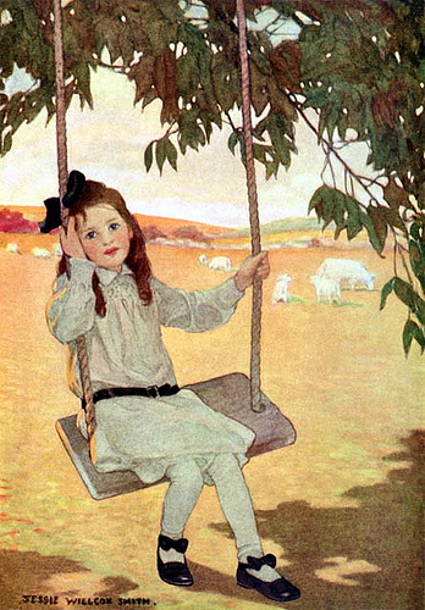 I think this would be a lovely idea for a spring celebration, perhaps sometime during April, poetry month:
I think this would be a lovely idea for a spring celebration, perhaps sometime during April, poetry month:
“Of Poetry Picnics and Fireflies”
“In Japan they sometimes have poetry picnics. When Master Sogi has an especially fine flowering tree, a cherry perhaps, all pink and with a wealth of bloom, he invites his friends to a party. There they come in their holiday robes and little clattering wooden sandals. They walk about the tree and admire it, they drink in its fragrance, and tea is served to them under its branches. Then they sit down and begin to scribble narrow , little slips of paper. By and by each one has written a poem in pretty Japanese characters, and after he has read it to the others, he goes and fastens it to a branch of the tree in honor of which the party was given.
That is pleasure enough, certainly, for one afternoon, but if the guests stay until nightfall it is possible that Master Sogi will provide for them another lovely game, that they may enjoy the beauties of Nature still further. When it is quite dark, he will let loose hundreds of captive fireflies in the garden, and as the pretty things flit here and there, showing their airy, elfin lights in the dusk, the guests will chase them hither and yon, over little bridges, in among the flowers, around quaint stone statues, about the tea house. All the garden will be gay with flitting forms and silver laughter, till the fireflies lose themselves in the moon-beams.”
I would show you the pictures in the book of the poetry-tree and the children chasing fireflies, but I’m not good at photography or posting pictures. You will just have to find your own copy of this delightful book of Japanese poetry and stories to share with the children in your life under your own poetry tree.







 O lead me by the hand,
O lead me by the hand,